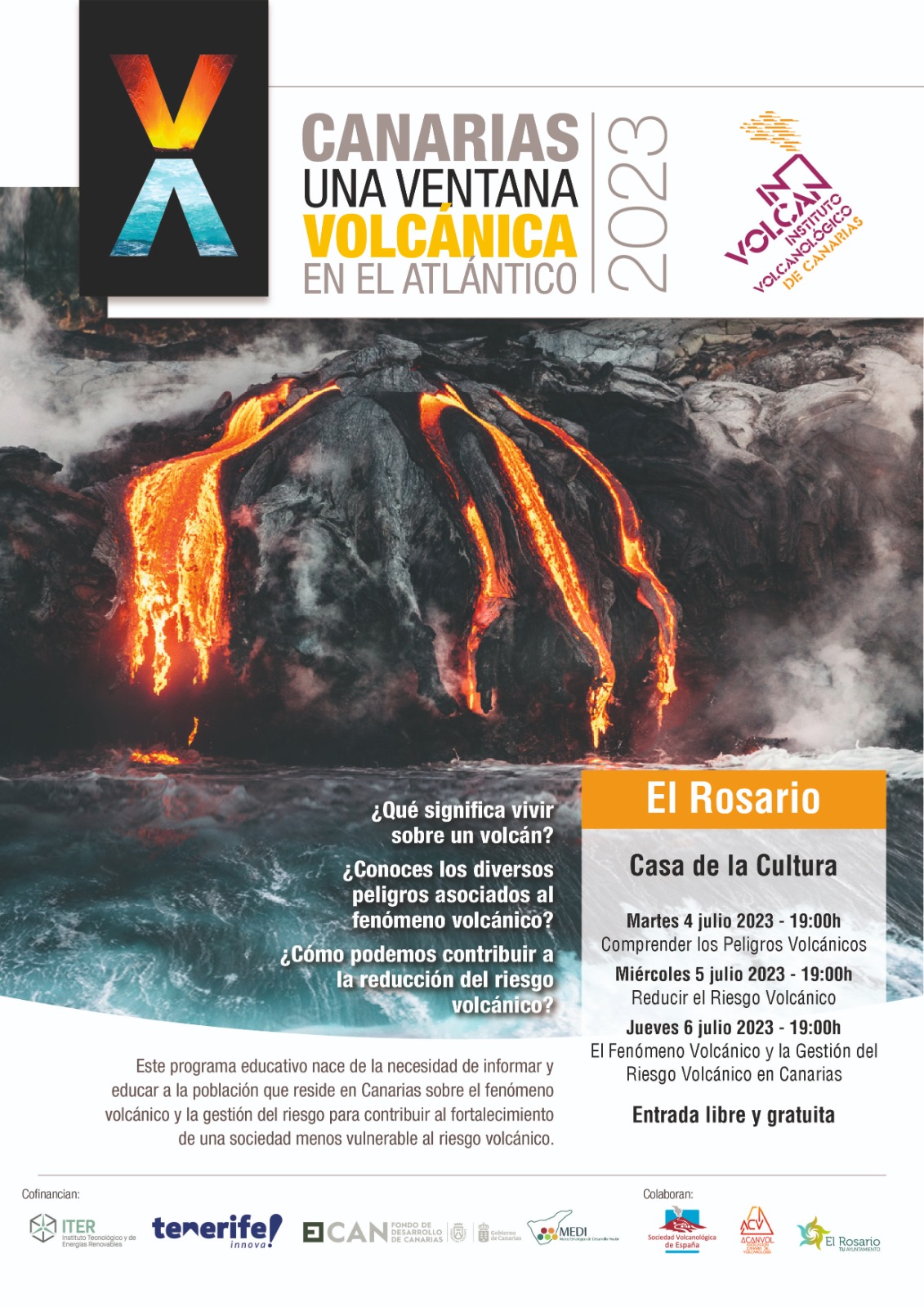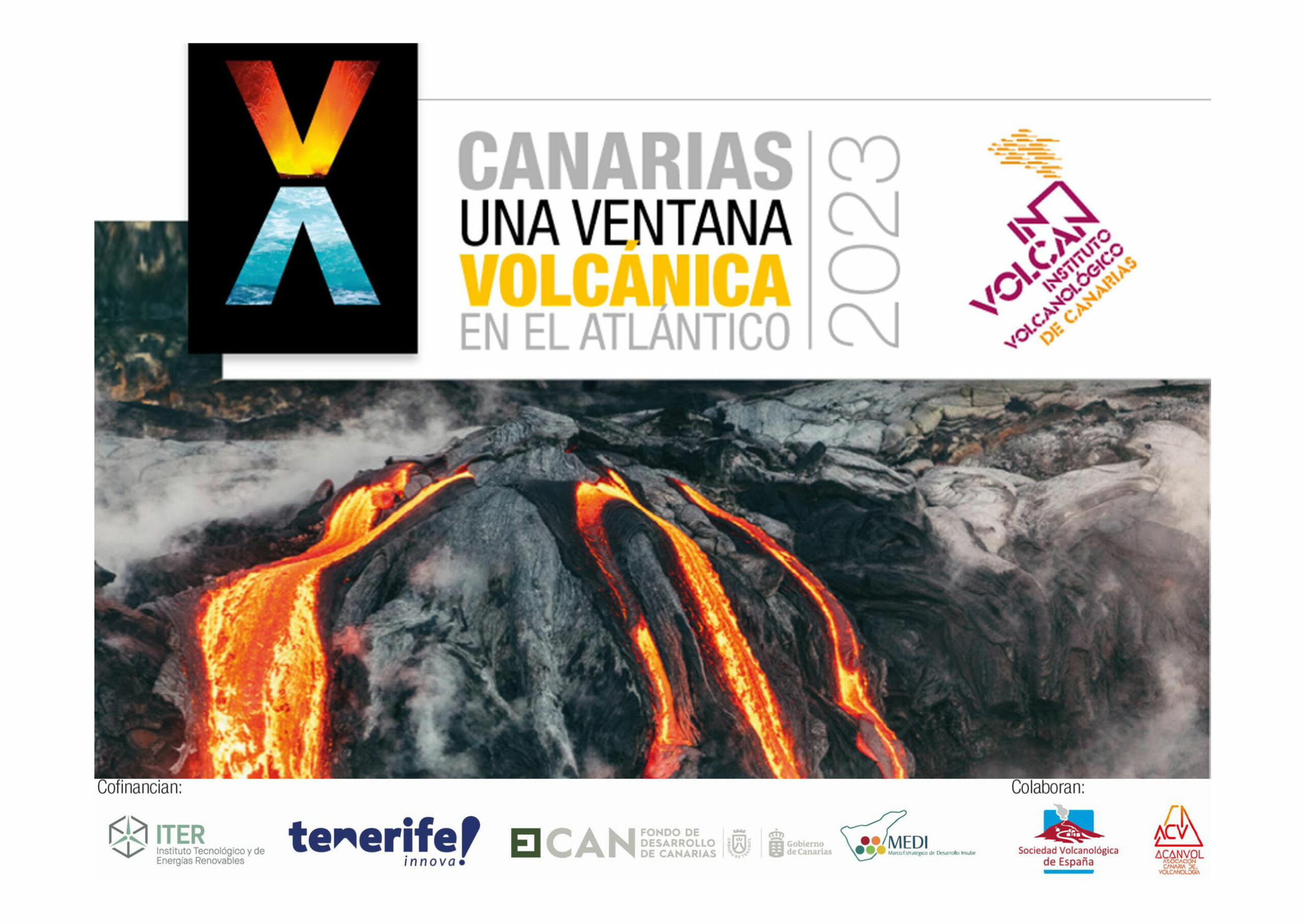The sessions will take place at the Cultural Center of the municipality, and attendance will be free and open to the general public. This educational program is an initiative by the Volcanological Institute of the Canary Islands (INVOLCAN) aimed at contributing to volcanic risk reduction in the Canary Islands.
The educational program «Canary Islands: A Volcanic Window in the Atlantic» returns to the municipalities of the Canary Islands in a face-to-face format with the goal of bringing volcanoes and volcanic risk management closer to the Canarian society. This program, organized by the Volcanological Institute of the Canary Islands (INVOLCAN), an entity dependent on the Cabildo of Tenerife, will be present during the upcoming week in the municipality of El Rosario, at the Cultural Centre. The educational program will unfold over three days, with free attendance open to the general public, and it is especially recommended for those involved in safety and emergency operations, both professionals and volunteers residing in the municipality. The three sessions of this program will take place on July 4th, 5th, and 6th, starting at 7:00 p.m.
«Canary Islands: A Volcanic Window in the Atlantic» was created to regularly inform and educate Canarian citizens about the various hazards associated with volcanic phenomena and the actions that should be taken to reduce volcanic risk. By doing so, we comply with the recommendations described in the Special Civil Protection and Emergency Response Plan for Volcanic Risk in the Autonomous Community of the Canary Islands (PEVOLCA) and the Tenerife Insular Action Plan for Volcanic Risk.
The ultimate objective of this program is to contribute to making the Canary Islands a community that is better informed and organized in the face of volcanic risk, thereby becoming much less vulnerable than a community that is unaware of or ignores the volcanic threats that surround it and does not organize itself to respond to them.
Funding for the development of these activities on the island of Tenerife is made possible through the project «Strengthening the Resilience of Tenerife Municipalities to Volcanic Risk,» co-financed by the Cabildo of Tenerife and the Technological and Renewable Energy Institute (ITER). In this new edition, the educational program is supported by the Volcanological Society of Spain (SVE) and the Canarian Association of Volcanology (ACANVOL), as well as by the 31 municipalities that will host the sessions.
Specific Objectives and Contents of the Three Educational Sessions
The first session aims to inform and educate attendees about the various hazards associated with volcanic phenomena through the screening of a documentary produced by INVOLCAN and Spanish Television in the Canary Islands titled «Understanding Volcanic Hazards.» This will be followed by a debate on the content of the documentary and the participation of attendees in a question and answer game known as the «Volcanic Trivia» to reinforce their knowledge and learning about the different volcanic hazards.
The second session aims to inform and educate the audience about the conceptual difference between volcanic hazard and volcanic risk by screening the documentary «Reducing Volcanic Risk,» edited by the International Association of Volcanology and Chemistry of the Earth’s Interior (IAVCEI) and the United Nations Educational, Scientific and Cultural Organization (UNESCO). After the screening, a debate with the audience will be promoted, as well as their participation in a second «Volcanic Trivia» to strengthen their knowledge and learning about volcanic risk management.
In the third session, attendees will have the opportunity to discover «traces» of the various hazards associated with volcanic phenomena, which were introduced in the first session, as well as the frequency with which these different volcanic hazards occur. Additionally, in this third session, attendees will learn how Canarian society, as a whole, is implementing volcanic risk management in the Canary Islands and the degree of compliance with actions recommended by the international scientific and political community for this purpose. As in the previous sessions, attendees will participate in a third «Volcanic Trivia» to reinforce their knowledge and learning about volcanic phenomena and volcanic risk management in the Canary Islands.


